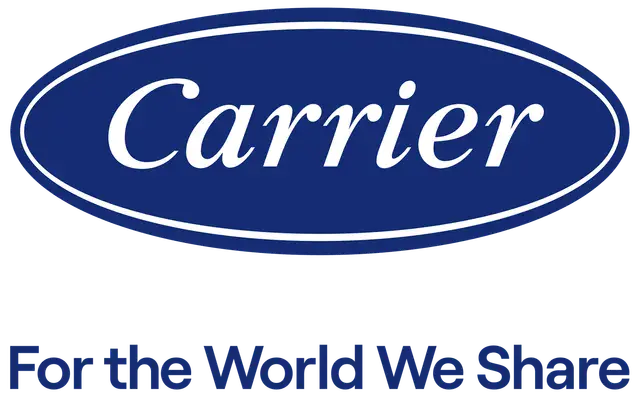While there are an overwhelming number of possible choices, Stegall takes into consideration your needs and expectations before recommending the ideal solution. We recognize the importance of generators that are fuel efficient, provide long run times, and deliver consistent power, and strive to avoid those products that suffer fluctuations that can cause equipment to shut down or damage appliances. If you are concerned over sound levels, we are happy to provide decibel ratings.
Understanding Generator Systems for Your Property
Power outages can strike at any moment, whether from severe weather, equipment failure, or grid maintenance. When electricity fails, your home or business doesn’t have to come to a grinding halt. At Stegall, we specialize in comprehensive generator solutions that keep your property powered when the main electrical grid cannot. Our electrical repair and installation teams understand that reliable backup power isn’t just about convenience—it’s about maintaining safety, protecting investments, and ensuring continuity in your daily operations.
The importance of backup power systems has grown exponentially as we’ve become increasingly dependent on electricity for everything from basic lighting to sophisticated home automation systems. Modern generators represent a significant advancement from the noisy, unreliable units of the past. Today’s systems integrate seamlessly with your existing electrical infrastructure, providing automatic power transfer within seconds of detecting an outage. We offer commercial, industrial and residential HVAC, plumbing, and electrical support services 24 hours a day, 7 days a week, ensuring that your generator system receives the attention it needs whenever issues arise.
Types of Generators We Install and Service
Standby generators represent the gold standard in backup power solutions. These permanently installed units connect directly to your electrical panel and activate automatically when they detect a power loss. Running on natural gas or propane, standby generators can power your entire property or selected critical circuits, depending on the size and configuration you choose. Our installation process involves careful load calculations to determine the appropriate generator capacity for your specific needs, ensuring you never find yourself undersized during an emergency.
Portable generators offer flexibility and affordability for those who need occasional backup power or have more modest power requirements. While these units require manual setup and connection during outages, they provide reliable power for essential appliances and systems. We help clients throughout Birmingham, Mountain Brook, Vestavia, Hoover, Helena, and Homewood understand the proper sizing, safe operation, and maintenance requirements for portable generators. Safety remains paramount with portable units, as improper use can lead to carbon monoxide poisoning or electrical hazards.
Inverter generators have gained popularity for their quiet operation and clean power output, making them ideal for sensitive electronics. These sophisticated units adjust engine speed based on power demand, resulting in improved fuel efficiency and reduced noise levels. Commercial properties often benefit from larger diesel generators that can run continuously for extended periods, providing reliable power for critical operations during prolonged outages.
Installation Process and Requirements
Generator installation involves multiple critical steps that require professional expertise and adherence to local codes. The process begins with a comprehensive site evaluation where we assess your electrical panel capacity, fuel source availability, and optimal placement location. Local ordinances in Alabama communities often specify minimum distances from property lines, windows, and air conditioning units, which we carefully consider during the planning phase.
The electrical connection represents one of the most crucial aspects of generator installation. We install an automatic transfer switch that monitors utility power and seamlessly transitions to generator power when needed. This sophisticated component prevents dangerous backfeeding into utility lines while ensuring smooth power transitions. Our certified electricians handle all wiring connections, grounding systems, and circuit breaker installations according to National Electrical Code standards. The fuel connection, whether natural gas, propane, or diesel, requires proper sizing and pressure regulation to ensure reliable generator operation under full load conditions.
Maintenance and Service Programs
Regular maintenance keeps your generator ready for action when emergencies strike. We recommend comprehensive service at least twice yearly, with more frequent attention for units in commercial or industrial applications. Our maintenance programs include:
- Oil and filter changes: using manufacturer-specified products to maintain engine longevity
- Battery testing and replacement: ensuring reliable starting capability
- Fuel system inspection: checking for leaks, proper pressure, and clean filters
- Load bank testing: verifying the generator can handle its rated capacity
- Control panel diagnostics: confirming all sensors and switches function correctly
Beyond routine maintenance, our emergency response team addresses generator failures quickly, minimizing downtime during critical situations. Common issues we encounter include fuel supply problems, battery failures, and control board malfunctions. Our technicians carry extensive parts inventories, enabling immediate repairs for most standard problems.
Sizing Your Generator Correctly
Proper generator sizing ensures reliable operation while avoiding unnecessary expense. We calculate your power requirements by evaluating essential loads including HVAC systems, refrigeration, lighting, and critical equipment. Many homeowners underestimate their power needs, particularly the starting surge requirements for air conditioning units and electric motors. A typical central air conditioning system might require 4,000 to 6,000 watts for starting, significantly more than its running wattage.
Commercial applications demand even more careful analysis, considering factors like three-phase power requirements, power factor correction, and future expansion possibilities. We utilize detailed load studies and power monitoring equipment to accurately assess your needs. Oversizing wastes money on equipment and fuel, while undersizing risks equipment damage and inadequate power during emergencies.
Integration with Modern Electrical Systems
Today’s generators must work harmoniously with increasingly complex electrical systems. Smart home technology, solar panels, and battery backup systems all require careful integration planning. We configure generators to work with existing solar installations, ensuring proper synchronization and preventing conflicts between power sources. Modern transfer switches can prioritize loads, shedding non-essential circuits when generator capacity becomes limited.
Remote monitoring capabilities allow you to check generator status, fuel levels, and maintenance schedules from anywhere using smartphone applications. These systems send alerts for potential issues, enabling proactive maintenance before failures occur. We install and configure these monitoring systems, providing training on their operation and interpretation of diagnostic information. As electrical systems become more sophisticated, generator controls must evolve accordingly, incorporating features like soft-start capabilities, harmonic filtering, and power quality monitoring to protect sensitive electronic equipment from damage during power transitions.


